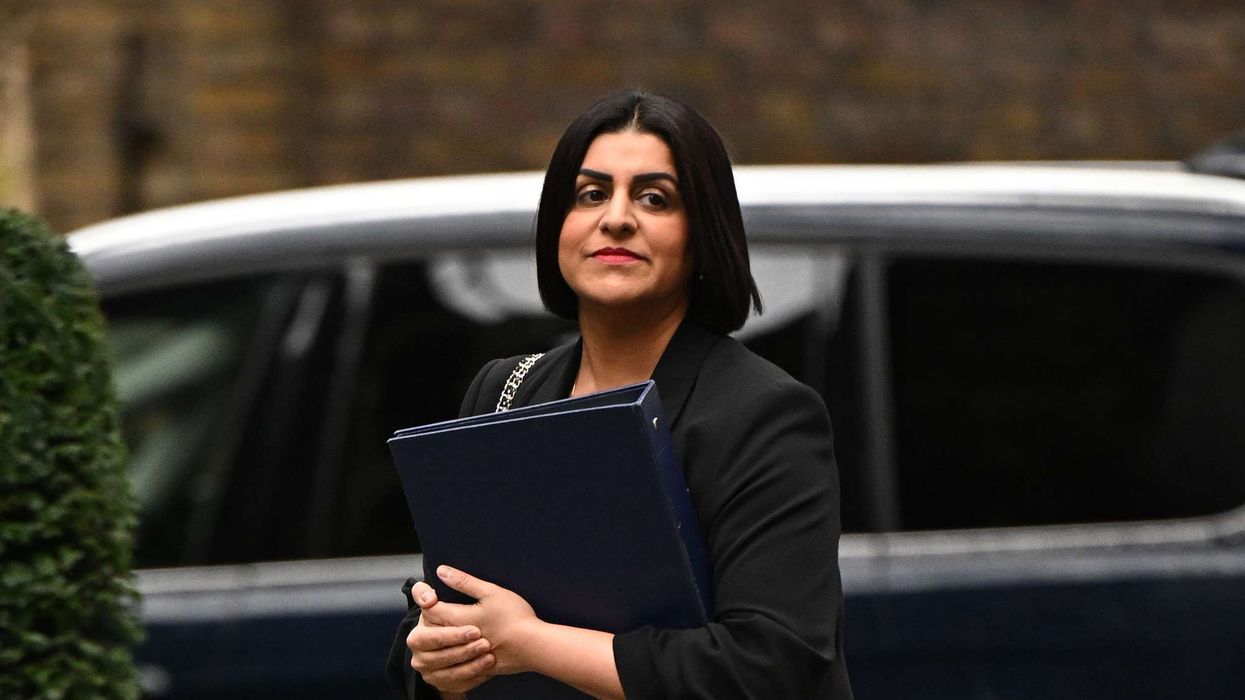UMAR KAMANI started his online fast-fashion retail brand PrettyLittleThing in 2012 when he was 24 years old.
Like his brother and business partner Adam, he was born into the rag trade.
When just a small child their father Mahmud had arrived with his parents and siblings as part of the 1968 exodus of Asians fleeing Kenya. The country’s African nationalist president, Jomo Kenyatta, had passed punitive laws that made it impossible for Indians to earn a living there.
The Kamani family was originally from Gujarat before migrating to Africa, and Mahmud’s great-grandfather had been a schoolmate of another eventual migrant to Africa, Mohandas Gandhi, in Rajkot in the 1880s.
Mahmud jokes that the family finally ended up in Manchester because that was where the plane landed: travelling to London would have cost £60 more and their total wealth was only £758.
Mahmud’s father Abdullah quickly set about making clothes to sell locally, and soon was importing from India and Africa with his son, a natural salesman, joining him.
By the early 2000s the internet was slowly beginning to transform retail and Mahmud, already supplying clothing chains across Europe, was thinking of setting up his own label and trading online, where there were fewer overheads and where he could sell more quickly and cheaply direct from the warehouse.
A few years earlier when it was a craze to speculate on internet domains his brother, Nurez, had bought the Boohoo.com name and in 2006 – when the family firm was already turning over in excess of £50 million – Mahmud launched the pioneer online clothing company (with fashion business partner Carol Kane).
Internet shopping was just beginning to take off and Boohoo grew with astonishing speed, “buying and sourcing in China and India, designing and making in Manchester,” catching and riding the wave of the internet sales revolution: “We’ve gone from no-one to number one in six years” said Mahmud in 2012.
Mahmud had already been a supplier to Primark and New Look and he had already built his own brands in Pinstripe, Starsign and Jogo, so he knew how to create and sustain brands in this sector.
Umar came on board after he and brother Adam graduated in fashion and business from university.
Six years later in 2012 the brothers took wing with the launch of their own highly-targeted label, as a complement rather than a rival to their father’s business.
“Boohoo is an all-encompassing fresh brand for the girl next door, whereas PrettyLittleThing is for her rebellious sister. It’s much fiercer, it’s about attitude, it’s feisty and it’s edgy,” said Adam.
The positioning of both brands is pivotal to understanding its success and influence. Whereas Boohoo states that its aim is to be the leading online female fashion brand – especially fashion and tops – for all 16-24 year olds, the brightly-coloured and Instagrammable PrettyLittleThing label is more specific.
It was originally planned only as an accessories site but quickly morphed into a niche offer that aims to “make every girl feel like a celebrity” and concentrated on dresses and jumpsuits
– parties and playtime, inspired by catwalks and influencers with an imagery of bright flowers, pink palaces and flying unicorns.
The average price-point of the articles sold across the sites was extremely low compared to items in traditional stores, which encouraged more frequent purchases; but even so, the average price of a PrettyLittleThing article was more expensive, at £16, than the typical £13 price-point of Boohoo.
Boohoo floated on the Alternative Investment Market (AIM) in 2014 with a valuation of over half a billion pounds and in 2016 – by now with a turnover exceeding £350 million – Mahmud exercised an option to buy PrettyLittleThing for £5m or less before a deadline in March the following year.
That was fine by Umar – who got cash and now the power of the Boohoo behemoth behind him grew (Adam meanwhile is concentrating on the family property business).
Boohoo now owns 66 per cent of PrettyLittleThing and also Nasty Gal, the Los Angeles-based super-niche brand that Umar bought out of insolvency and which sells limited edition lines to a slightly older (independent and wilder) customer: fashion-forward, free-thinking 18-27 year-old women.
Umar’s great success has been image and marketing – he is a theatrical master of promotion - and also looks to cut down on timescales and production lines.
In fact PrettyLittleThing can turn around a new piece in barely a week or two from idea to listing.
The nimbleness and energy of such high-energy, value-driven fashion, makes it resilient to the current high street woes, even if it suffers criticism over waste and sustainability – the brand has, notably, recently launched its first recycled collection.
As PrettyLittleThing founder and CEO, 31 year-old Umar has hit on the perfect combination of fun, fashion and affordability on your phone. Year-on-year revenue rose 107 per cent (Nasty Gal was not far behind) and overall Boohoo turned over £374.4m to March this year with gross profits almost 40 per cent higher and underlying margins up. (Mahmud’s Boohoo has also just bought struggling high street brands Karen Millen and Coast.)
The number of customers at PrettyLittleThing founder soared to 1.3 million of Boohoo Group’s five million total, up 70 per cent; and the label has more than 10 million followers on Instagram. Umar has opened a new 615,000 sq ft Sheffield warehouse.
Brands in this space are not all doing well - it may look simple from the outside, but consumers are more savvy and discerning than they may appear on paper.
“As brands get bigger,” reflects Umar, “things can start to drift without the leader even knowing about it. We have to stick to our values, and make sure that as the business gets bigger and our overheads get bigger, that we don’t start increasing our prices.”
PrettyLittleThing has recently opened a 7,000 sq ft office in LA near its Nasty Gal HQ – the brand already receives 20 per cent of its income from the USA.






